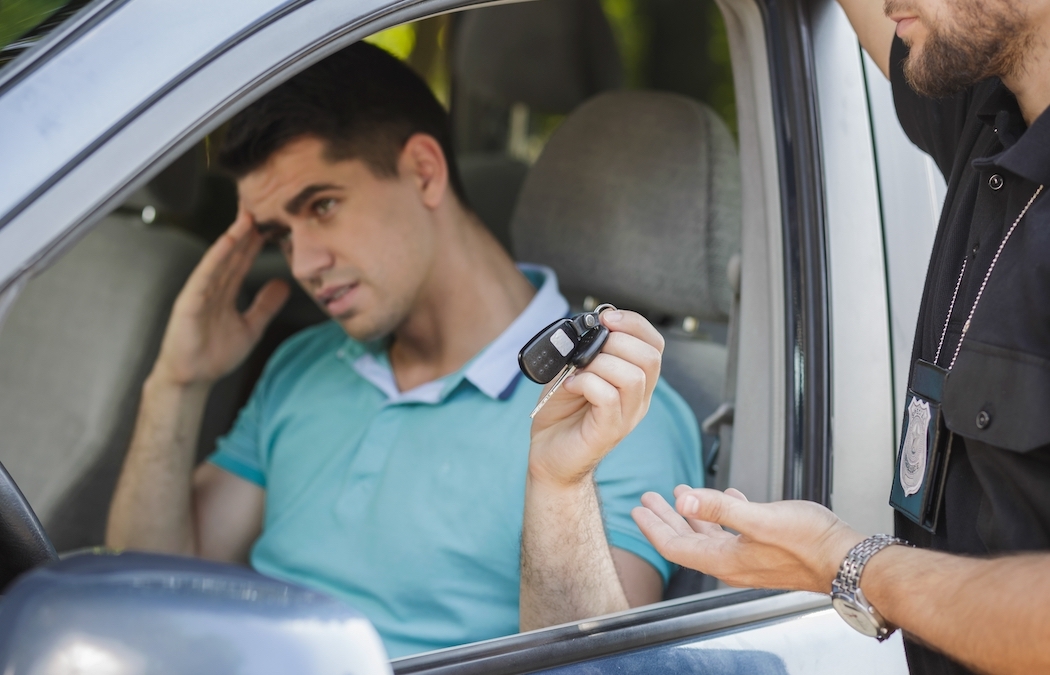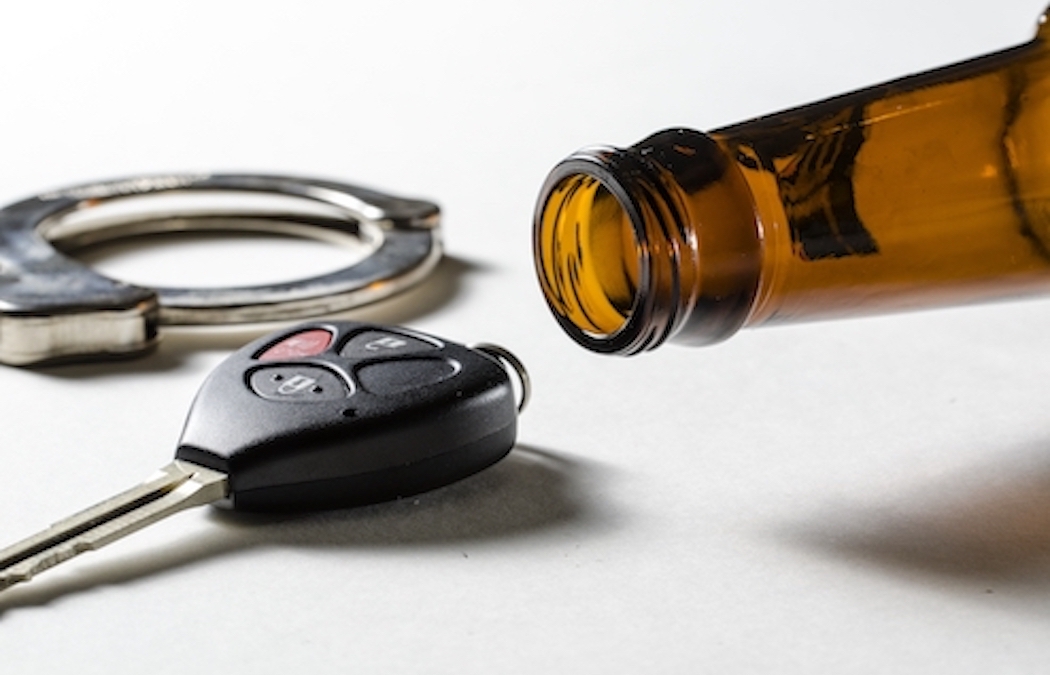
by
Damon Hopkins
|
April 3, 2019
|
Blog
In 2003, the Pennsylvania legislature overhauled its drunk driving laws. The crime of driving under the influence (DUI) is now technically called DAI, or “driving after imbibing” (DAI). This new legislation also lowered the blood alcohol concentration (BAC) levels to .08% in order to include drivers who consider themselves sober or “buzzed,” and not necessarily what they would assume as being “drunk.” Pennsylvania has a zero-tolerance policy for drivers operating a motor vehicle while under the influence of any mind-altering substance; including alcohol, illegal drugs (yes, even medical marijuana) and prescription or over-the-counter drugs. Regardless of what it is called, drunk driving in Pennsylvania is a serious criminal offense with severe penalties that include the loss of ones’ driver’s license, Erie county fines, and even jail time. That is why it is critical to act quickly following a DAI /DUI arrest in Erie, PA.
DAI / DUI defense Attorney, Damon C. Hopkins has successfully defended countless clients against drunk driving charges throughout Pennsylvania and, in many cases, have cleared the charges entirely. Damon C. Hopkins is prepared to help minimize the damages of a DAI / DUI arrest. Contact Attorney Hopkins anytime to discuss your Pennsylvania DUI / DAI case or to schedule a free consultation in Erie, PA.
Explaining the Consequences of Receiving a DAI / DUI in Pennsylvania
When it comes to DAI / DUI in Pennsylvania, the penalties are severe. Pennsylvania is one of just a few states that has a “per se” law related to driving under the influence of illegal drugs (DUI Drugs). Meaning, that if a Pennsylvania DUI / DAI arrestee has any illegal drugs in their system, they will be punished as if they were at the highest alcohol levels. A first-time DUI / DAI for illegal drugs requires a mandatory minimum of 72-hour incarceration in jail, that could be as long as six months depending on other factors. The fines for a first-time DUI / DAI offense can also be as high as $5,000, along with a 12-month driver’s license suspension.
Drunk driving defense attorney Damon Hopkins might be able to challenge your DUI / DAI charges if the arresting officer did not a proper basis to stop the vehicle. Keep in mind that if the arrestee was not observed committing a crime or traffic violation before being pulled over, the police may not have had the right to stop or question that person. As an experienced DUI attorney in Erie, PA, Damon C. Hopkins can assess whether the police had the right to pull you over in the first place.
3 Common Tests Used in Pennsylvania DUI / DAI Cases:
- Portable Breath Test: Commonly called a “portable breathalyzer”, or “PBT”. Based on the results of this test, the police officer may arrest a driver for drunk driving.
- Field Sobriety Test: If a driver appears intoxicated, the police may ask them to perform a series of field sobriety tests. If they fail the tests, the police officer may arrest the driver.
- Blood Test: After DAI or DUI arrest in Pennsylvania, the arrestee may be taken to a hospital where blood is drawn to more accurately determine their BAC level.
- Breathalyzer: After DAI or DUI arrest in Pennsylvania, the arrestee may be taken to a location where they are given a full-sized breath test to more accurately determine their BAC level.
DAI Defense Attorney Hopkins, DUI Attorney in Erie Pa, looks for any errors that could’ve been made:
- Police improperly detained the driver or made an error of law during the stop.
- Police failed to follow proper policies and procedures during DUI tests.
- The breathalyzer was improperly calibrated, causing a false reading.
- The results of the blood test were inaccurate or improperly obtained.
Charged With Drunk Driving or DAI In PA? Contact Damon Hopkins – Erie’s DUI / DAI Defense Lawyer
Attorney Damon C. Hopkins is a former prosecutor, providing a unique insight into the process of criminal defense across Erie County. He can view your case from all angles and plan the best possible line of defense. With more than 23 years of trial experience, both as a prosecutor and a defense lawyer, he is prepared to assist you in any criminal case, helping to protect people’s civil rights.
If you have been charged with DAI / DUI in Northeastern Pennsylvania, don’t assume that you have to plead guilty. Contact Damon Hopkins, an experienced DUI defense lawyer, today for a consultation before making any further moves. He will fight to defend you against the DAI charges and help to avoid more severe penalties for drunk driving in Erie, North East, Harborcreek, Corry, and across Northeastern PA. Please fill out our contact form for a free initial consultation about drunk driving charges.

by
Damon Hopkins
|
February 20, 2019
|
Blog
What amount of medical marijuana can I have in my system and still drive in Pennsylvania without getting a DUI? The simple answer–NONE. Although Pennsylvania has made medical marijuana legal, the fact remains that Marijuana is still listed as a Schedule I controlled substance. The DUI law in Pennsylvania states that an individual may not drive, operate or be in actual physical control of the movement of a vehicle when there is “any amount of a Schedule I controlled substance” in the individual’s blood. Technically, this means that you are committing the crime of DUI if you have even the slightest amount of marijuana in your blood when you are driving.
The Dangers of Drugged Driving in Erie, PA | Driving Under the Influence of Drugs
Even if Marijuana was not still listed as a Schedule I controlled substance, driving after using medical marijuana would still be risky. Any person who drives when they are under the influence of a prescription drug, over the counter medicine, or a combination of both, which makes them incapable of safely driving is committing the crime of DUI. Some of the legal consequences of drugged driving other than receiving a DUI or other similar consequences include:
- Fines
- Reckless driving charges
- License suspension
- License revocation
- Prison time
- Loss of your marijuana card
It doesn’t matter if you took a prescribed drug, or just used a common cold medicine that you bought at the store. If the substance you ingested makes you incapable of safely driving your vehicle, you can be convicted of DUI in Pennsylvania.
Recommendations for Driving After Taking Medicines
Often, people asked, “How do I know when it’s ok for me to drive again after I used my medical marijuana or other medicines?”, the best answer is to discuss that with your Doctor because there are numerous factors that go into figuring out how long any medicine will have an effect on a person. The second best answer is to not drive until you have had a full nights sleep or at least several hours after you stop feeling the effects of your medical marijuana. This doesn’t guarantee that you couldn’t still be charged with DUI, because medicinal marijuana can be detected in your system for up to 30 days. But the longer you go after the medicinal effects wear off, the lower the risk will be of you getting a DUI. Remember to only drive when you are in total control of your ability to drive safely. If you’ve been charged with driving under the influence of alcohol or drugs, it’s in your best interest to get in touch with Damon Hopkins, your skilled DUI attorney today.

by
Damon Hopkins
|
January 29, 2019
|
Blog
DUI, Driver’s License Suspensions, and Limited Licenses Pennsylvania has created a new law which may allow persons convicted of DUI to still drive during the time that their license is otherwise suspended. Those who have been convicted of DUI, or entered the ARD program for a DUI, may be able to continue to drive their vehicle if they have an Ignition Interlock device installed and obtain an ignition interlock limited license from PennDOT. Determining if you are eligible can be tricky, as the law is very confusing. We strongly suggest you consult with Attorney Hopkins about your DUI case, and he will help you determine if you can keep driving.
Determining Eligibility for an Ignition Interlock Limited License (IILL)
Once you discover you are eligible, you must obtain an ignition interlock limited license (IILL) from PennDOT before you can drive. The application process under the new ignition interlock law can be very confusing. In order to avoid problems with your IILL application, you should follow the steps below:
- A couple weeks after your DUI sentencing, or entry into ARD, you will receive a suspension letter from PennDOT officially notifying you of the license suspension.
- Surrender your license to PennDOT. You can do this by certified mail or by taking your license and suspension letter to your local PennDOT license center. Always get a receipt.
- Select an ignition interlock vendor. I suggest you go to the Pa DUI Association website and click on the Ignition Interlock Vendors link in the middle of the homepage, or call 1-800-627-2384. Attorney Hopkins has partnered with a major ignition interlock vendor which allows his client’s to qualify for a free basic installation and first month free, when their suspension is 12 months or longer.
- Contact the vendor of your choice to schedule an appointment to install the ignition interlock device. There will be an installation fee and a monthly equipment rental fee. Installation fees may vary from vendors, so shop around. Currently, the average costs associated with renting an Ignition Interlock system is between $900 to $1,300 per year.
- Prior to taking your vehicle for the install, you need to complete two PennDOT forms: The IILL Petition (DL-9108) and Self Certification of Vehicles to be Completed form (DL-9108SC). You can download these directly from the PennDOT website.
- On the day of the install, take with you the PennDot suspension letter and the forms from step 5. Have the vendor install the ignition interlock device and complete Section D of the self-certification form (DL-9108SC). The vendor will keep a copy and return the original form to you.
- The completed DL-9108, DL-9108SC must be filed by certified mail and must include the $65 application fee, and any other required fees. Everything gets sent to the following address:
“Pennsylvania Department of Transportation Bureau of Driver Licensing Restorations Unit, Ignition Interlock License
P.O. Box 68273
Harrisburg, PA 17106-8273″
- Within 3 to 4 weeks of receiving your petition, PennDOT will inform you in writing of whether you are eligible for an IILL.
Damon C. Hopkins–DUI and Criminal Defense Lawyer
If you find yourself in need of a DUI/DWI attorney and are located anywhere in Erie County, Pennsylvania, including the City of Erie, Corry, Fairview, Girard, Harborcreek, Millcreek, North East, or any other surrounding areas, it is important to remember that you are not alone. Attorney Hopkins understand that you’re in a difficult place and need a lawyer that cares about you, your unique circumstances, and will give you honest, straightforward advice about potential outcomes and how to proceed. Having worked as a criminal prosecutor for eight years, he has the knowledge and litigation experience to provide spectacular representation to clients in need of legal assistance in criminal defense, DUI/DWI, juvenile delinquency, and traffic violations.
Contact us to schedule a free consultation for your DUI charges

by
Damon Hopkins
|
August 1, 2018
|
Blog
In order to obtain a Protection from Abuse Order (PFA) in PA, the following steps must be completed:
- Must fall under the qualifications of obtaining a PFA in Pennsylvania
- Fill out a request for a PFA at your County’s PFA office
- Appear briefly in person before a judge who will grant or deny your PFA on a temporary basis
- Attend the Final Hearing on your PFA where you & your attorney present evidence OR the defendant consents to the granting of the PFA
The PFA process is intended to provide relief for a victim from his or her abuser. Many individuals relate Protection from Abuse Orders (“PFA”) to Restraining Orders. In fact, those terms are often used interchangeably. However, the PFA process is not considered part of the criminal system, and a restraining order is. While criminal charges can come from actions leading to a PFA, the PFA process itself is civil. Attorney Damon C. Hopkins has dedicated over two decades of his life to serving those involved with PFA’s, needing to get a PFA, or defending people who have been wrongfully accused and been served a temporary PFA in Erie, Harborcreek, Cory, Girard, and surrounding areas in PA. As a PFA attorney, Damon C. Hopkins has experience working with the PFA laws in Pennsylvania and devotes his time and effort to find the best solution for every case.
What are the Requirements to Obtain a PFA in Pennsylvania?
There is a common misconception that any individual can obtain a PFA against another individual. In reality, only a specific group of people can obtain a PFA against someone who harasses them. PFA’s are administered under two Pennsylvania statutory sections, which determines the PFA’s reach and limitations. The two Pennsylvania statutory sections are:
- “Domestic Abuse” situations
- “Sexual Violence by a Stranger” situations
Domestic Relations
Pennsylvania law, specifically 23 Pa.C.S. Section 6102, defines “Abuse,” “Victim,” and other terms for the reader to clearly understand the text of the law. With doing so, the Protection from Abuse statute dictates who can request a PFA in PA. In order to obtain a PFA, the abuser must have been one of the following to the victim:
- A family or household members
- A sexual or intimate partners
- A person who share biological parenthood
Thus, the “Domestic Relations” section does not allow a PFA to be ordered against a stranger, co-worker, etc.
Section 6102 also dictates under what circumstances a PFA can be given. In Pennsylvania, a PA PFA can be given only when the perpetrator has engaged the victim in one or more of the following:
- Attempting to cause or intentionally, knowingly or recklessly causing bodily injury, serious bodily injury, rape, involuntary deviate sexual intercourse, sexual assault, statutory sexual assault, aggravated indecent assault, indecent assault or incest with or without a deadly weapon.
- Placing another in reasonable fear of imminent serious bodily injury.
- The infliction of false imprisonment pursuant to 18 Pa.C.S. Section 2903 (relating to false imprisonment).
- Physically or sexually abusing minor children, including such terms as defined in Chapter 63 (relating to child protective services).
- Knowingly engaging in a course of conduct or repeatedly committing acts toward another person, including following the person, without proper authority, under circumstances which place the person in reasonable fear of bodily injury. The definition of this paragraph applies only to proceedings commenced under this title and is inapplicable to any criminal prosecutions commenced under Title 18(relating to crimes and offenses.)
Sexual Violence by a Stranger
Pennsylvania broadened its PFA law on July 15, 2015, through statute at 42 Pa.C.S. section 62A01. Section 62A01 protects victims of “sexual violence” or “intimidation.” “Sexual violence” is defined as “conduct constituting a crime under any of the following provisions between persons who are not family or household members.” Meanwhile, “intimidation” is defined as “conduct constituting a crime under either of the following provisions between persons who are not family or household members”(Pennsylvania General Assembly.) “Sexual violence” and “intimidation” relates to various sexual crimes and covers sexual crimes that occur outside of family or household members, which the domestic relations section does not address. In short, unlike domestic relations situations, sexual violence by a stranger situations protects non-family or household members.
The Process of Requesting a PFA in Pennsylvania
The process for obtaining a PFA in Pennsylvania is relatively quick. Nevertheless, each county follows a different process to receive a PFA order. For example, Erie County in a non-emergency situation will have a victim go to the PFA office and request a Protection from Abuse Order. A judge will determine to grant or deny a temporary Protection from Abuse Order. Whether denied or granted, the victim and the alleged perpetrator will have a right to a hearing for a final determination to be made. Assuming a temporary order is issued, the temporary PFA will last up to 10 days, within which time a Judge schedules a final hearing where both sides will present their positions and evidence. To obtain a PFA in Erie County, PA, go to Erie County’s Office of Protection from Abuse.
Advantages of Consenting to a PFA
It is important to note that the two parties, typically through their attorneys, can avoid a PFA hearing and agree to the terms and length of the PFA, the maximum still being three years. Reaching an agreement without a trial can benefit both the victim and the perpetrator. The victim does not risk the Judge dismissing the PFA, obtains a court order making the PFA final for his or her protection, and avoids having to testify. The alleged perpetrator does not admit to any of the underlying PFA facts and is merely agreeing to stay away from the victim. Overall, PFA’s can have significant effects on both the victim and the alleged perpetrator’s life. Contact Attorney Damon C. Hopkins for an experienced PFA Lawyer to represent you in Pennsylvania.
Choosing PFA Attorney Damon C. Hopkins
Attorney Hopkins understands that each PFA case is unique and he takes the time to understand your particular situation and will develop solutions that meet your needs. As both a fighter and fixer, Damon C. Hopkins possesses a sophisticated legal knowledge that allows him to handle a wide range of legal matters. If you find yourself in need of an attorney to help obtain a PFA or defend against one, and are located anywhere in Erie County, Pennsylvania, including the City of Erie, Corry, Fairview, Girard, Harborcreek, Millcreek, North East, or any other surrounding areas, it is important to remember that you are not alone. At Hopkins Law, we understand that you’re in a difficult situation and need a PFA lawyer that cares about you and gives you honest, straightforward advice about potential outcomes and how to proceed.







